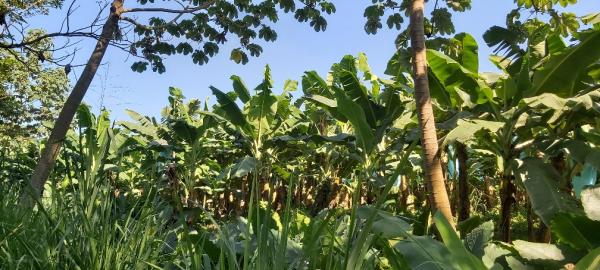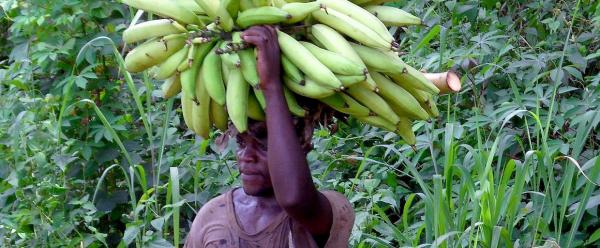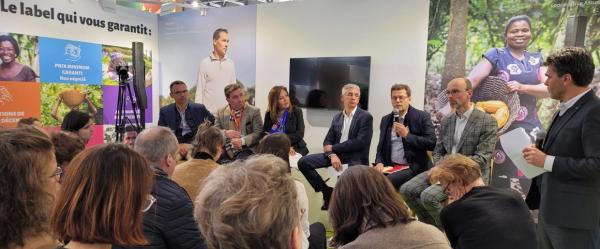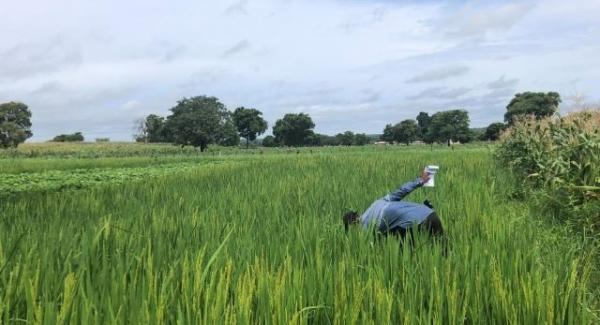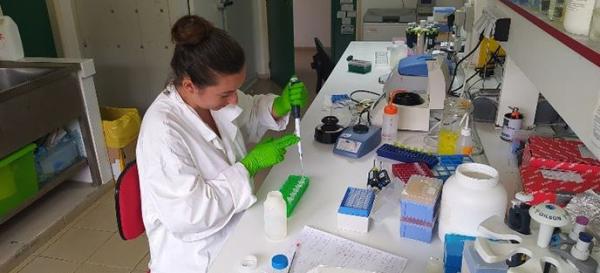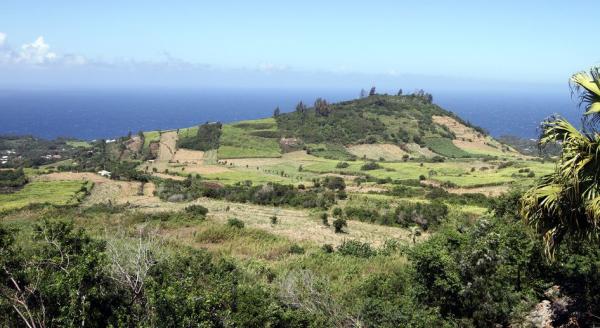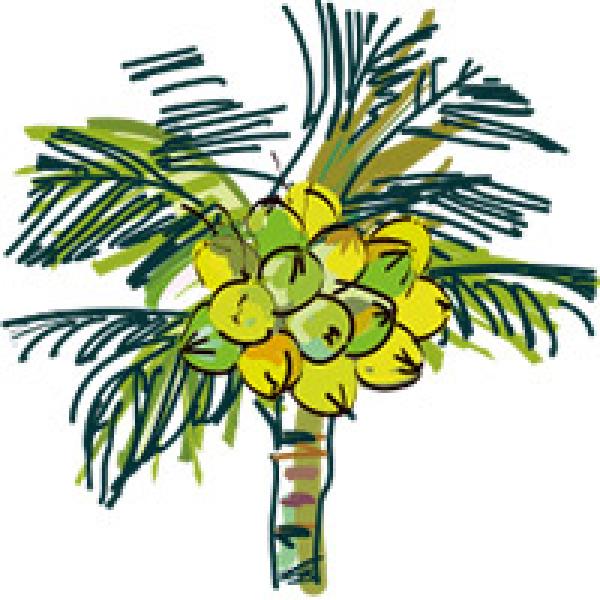Science at work 4 January 2024
- Home
- Our activities, our impact
- Tropical value chains
- Banana and plantain

Banana and plantain
We work in partnership with other organizations in North and South, and with players in the value chain (from production to distribution), to make the export banana and plantain value chains more environmentally and socioeconomically sustainable. The aim is to obtain accessible, quality products that respond to economic, social and food security issues.
Our multi-disciplinary approach is geared towards impact, and provides solutions to systemic problems.
Working together for sustainable, quality value chains
Our strength and originality: we anticipate, recommend, operationalize and innovate
CIRAD has more than 70 years' experience of working in partnership with other research organizations on banana value chains. It plays a vital role and can boast the world's largest banana and plantain R&D team. In all, we have around a hundred researchers working in this field, in metropolitan France, the West Indies, Africa and Asia.
We have experimental research infrastructures, laboratories and field installations, notably varietal creation and breeding platforms in the West Indies and Montpellier and an in vitro plantlet production subsidiary: Vitropic.
Our expertise is founded on a wide range of complementary scientific fields
Those fields range from genome studies to market studies, with sound expertise in systems agronomy, agroecology, genomics, genetics, plant pathology, virology, integrated pest management, physiology and market analysis.
Our multi-disciplinarity centres on six pillars:
- Varietal creation and breeding (conventional genetic improvement, without GMOs)
- Building innovative cropping systems
- Epidemiosurveillance and pest and disease control
- Mastery of postharvest quality, physiology, and processing systems
- Environmental, economic and social assessments
- Markets and value chain stakeholders.
The originality of our approach also lies in our strong impact culture
We work in partnership with players in both North and South, at every stage of the value chain. We anticipate change, develop innovations and help players implement them, thanks to our advice and expertise.
Our references and results
Reducing pesticide use in the banana plantations of the West Indies
Thanks to our agroecology work on banana, we have developed production systems that use 70% less pesticides, in the banana plantations of the West Indies.
Find out more >> Pour une production bananière durable et écologiquement intensive à la Martinique (in French)
A new, 100% organic variety: "Pointe d’Or", developed by conventional varietal improvement
"Pointe d'Or" is the fruit of collaboration between the Institut technique tropical (IT2), of which CIRAD is an honorary member, and the banana value chain in Guadeloupe and Martinique, and is the first variety resistant to black Sigatoka, a disease caused by the fungus Pseudocercospora fijiensis. Development is ongoing, and it it is currently being grown organically in the French West Indies.
Two collaborative platforms with producers in the French West Indies
We have set up a platform to develop new agroecological production systems, and another to create and breed new banana varieties, and have obtained the first banana plants resistant to black Sigatoka (Pseudocercospora fijiensis fungus) and to Panama disease (races 1 and 4, or TR4 – tropical race 4 – of the fungus Fusarium oxysporum f.sp. cubense ).
Sustainable resistance to black Sigatoka in new banana varieties: DuRéBan project
CIRAD is working with professionals from the sector (UGPban and BANAMART) and IT2 to develop hybrid varieties resistant to the disease, test the sustainability of varietal resistance under natural conditions and define the best rollout strategies to control the disease.
Breeding varieties resistant to Panama disease tropical race 4 (TR4)
Several hybrids from CIRAD's breeding platform in Guadeloupe have been selected for their disease tolerance in greenhouses at the University of Wageningen (Netherlands), and their field resistance confirmed in contaminated zones in Australia's Northern Territory, where their agronomic assessment is now under way. Partners: Wageningen University and Research - WUR (Pays-Bas), Northern Territory Department of Primary Industry and Resources & Queensland Department of Primary Industry and Fisheries (Australia).
"Filière Qualité Carrefour" bananas
We have drafted a set of "Triple 0 banana" specifications, based on banana production systems that use zero insecticides, zero nematicides and zero postharvest products. We are helping producers in the French West Indies and West Africa to roll out such systems.
Capacity building for plantain banana producers
We are training plantain banana producers and other players in the value chain in West Africa in agroecological practices (Formation agricole pour la Banane plantain en Afrique – FABA – project). By developing and rolling out innovative teaching tools and content, we are fostering ecological intensification of plantain banana growing, combining economic performance and greater respect of local people's health and the environment.
A new variety, "CARBAP K74": a very promising plantain-like hybrid
This new hybrid, developed by CIRAD in partnership with the African Centre for Banana and Plantain Research (CARBAP) has enriched existing banana biodiversity. Its fruits are very similar to plantain bananas in terms of both their taste and their processing characteristics (chips, flour). The variety has exceptional agronomic properties that mean it can be grown without using pesticides: resilience in marginal growing conditions, very high yield potential, resistance to black Sigatoka, and very high tolerance to banana weevil and nematode attacks. This CIRAD-CARBAP variety has been registered with the International Union for the Protection of New Varieties of Plants, and is currently being assessed.
GenomeHarvest project
Mobilizing biomathematics/bioinformatics and genomics/genetics to decipher genome organization and dynamics as pathways to crop improvement. We are working with the project's scientific partners to develop, use and supply models, methods and tools that aloow a better understanding of the ancestral origins and chromosome structures of the genomes of several crop species resulting from frequent inter(sub)-species hybridization events, such as banana. Project partners: UMR DIADE, UMR IPME, UMR GAFL, UMR CBGP, LIRMM, ISE-M, Bioversity International
Find out more: GenomeHarvest project website
Dynamo project - Genoscope, France Génomique
Reticulate evolution and trait inheritance; how do interspecific mosaic phylogenomic structures drive the dynamics of banana (Musa spp.) and citrus (Citrus spp.) genomes and phenomes? Producing high quality reference sequences, sequencing more than a hundred wild and cultivated banana trees and genotyping populations from the banana breeding platform in Guadeloup by sequencing have enabled a better understanding of the origin of banana trees, how their genome is organized and the impact of the main structural variations on chromosome segregation, and studies of the links between agronomic traits and genetic markers. Project partners: Genoscope, Equipe SEAPAG (Agap Institut).
























